CppCon 2022 The Lambda Calculus in C++ Lambdas -- David Stone
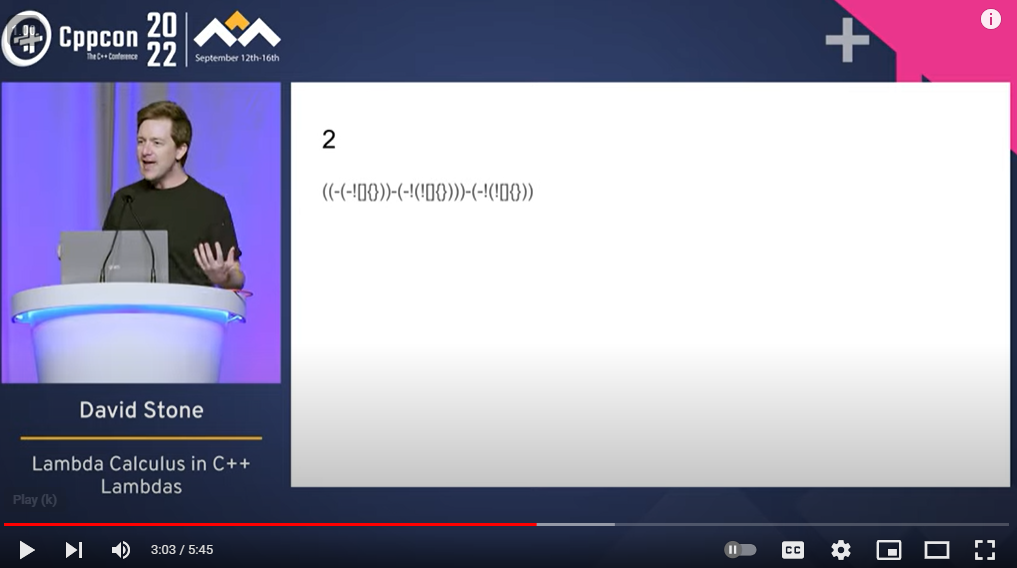 Registration is now open for CppCon 2023! The conference starts on October 1 and will be held in person in Aurora, CO. To whet your appetite for this year’s conference, we’re posting videos of some of the top-rated talks from last year's conference. Here’s another CppCon talk video we hope you will enjoy – and why not register today for CppCon 2023!
Registration is now open for CppCon 2023! The conference starts on October 1 and will be held in person in Aurora, CO. To whet your appetite for this year’s conference, we’re posting videos of some of the top-rated talks from last year's conference. Here’s another CppCon talk video we hope you will enjoy – and why not register today for CppCon 2023!
Lightning Talk: The Lambda Calculus in C++ Lambdas
by David Stone
Summary of the talk:
The lambda calculus is a foundation of computation equivalent in power to Turing machines.

 Recently, our team at Meteksan Defense is upgrading its development environment to use newer versions of many tools and programming languages. One of the more difficult transitions has been the upgrade of our C++11 code base to C++17 for our embedded applications.
Recently, our team at Meteksan Defense is upgrading its development environment to use newer versions of many tools and programming languages. One of the more difficult transitions has been the upgrade of our C++11 code base to C++17 for our embedded applications.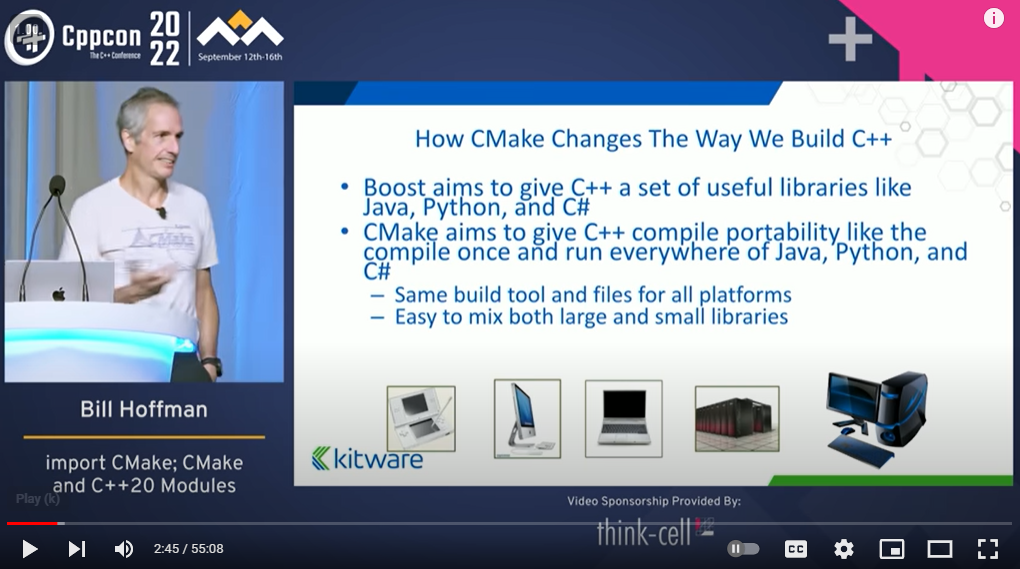 Registration is now open for CppCon 2023! The conference starts on October 1 and will be held
Registration is now open for CppCon 2023! The conference starts on October 1 and will be held 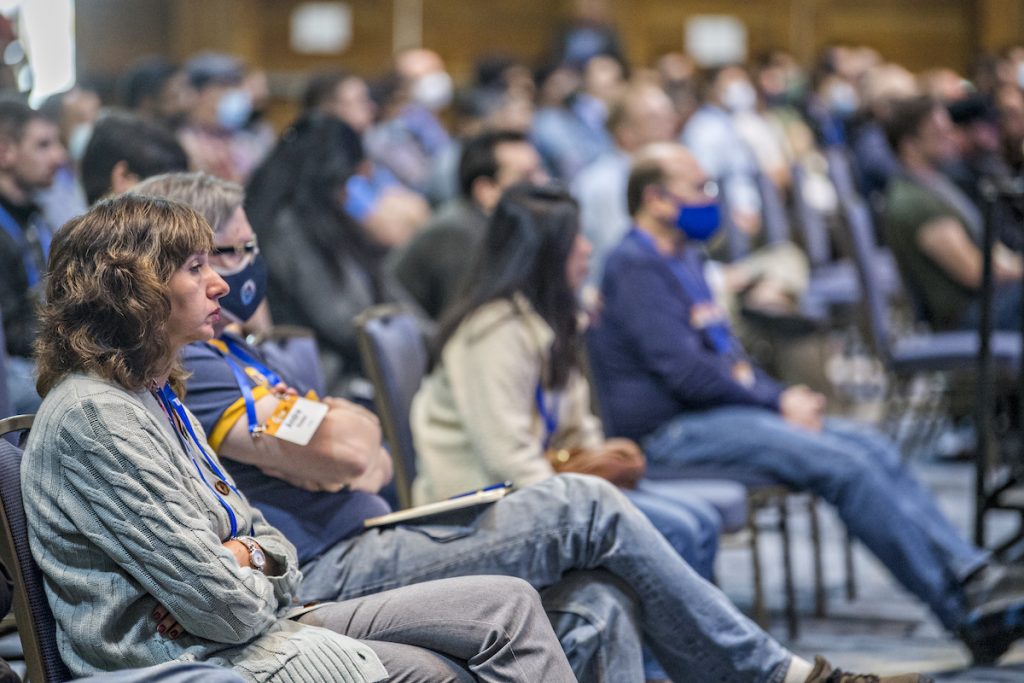 On October 2,
On October 2,  Suppose you want to write a template function that accepts any specialization of
Suppose you want to write a template function that accepts any specialization of 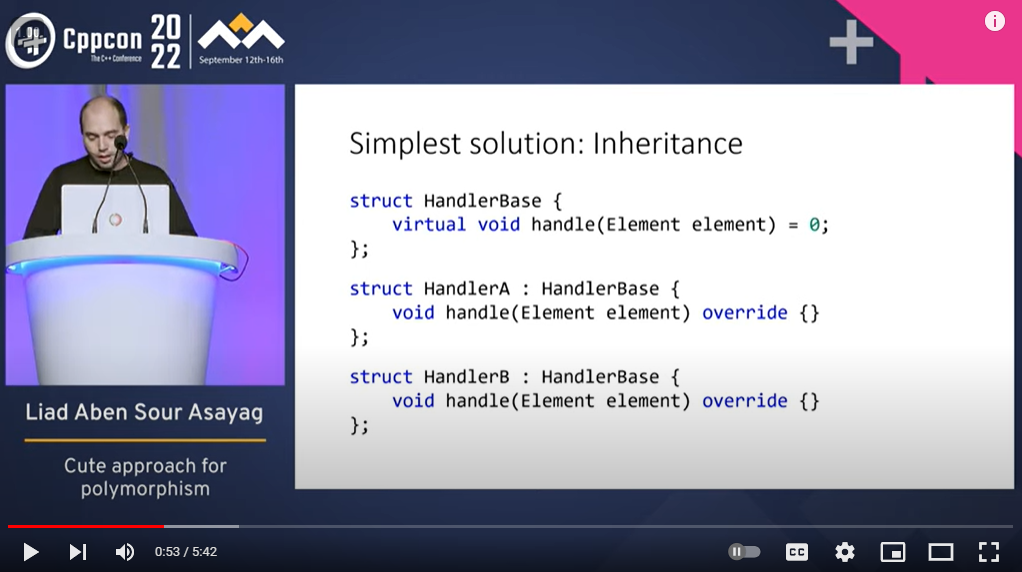 Registration is now open for CppCon 2023! The conference starts on October 1 and will be held
Registration is now open for CppCon 2023! The conference starts on October 1 and will be held 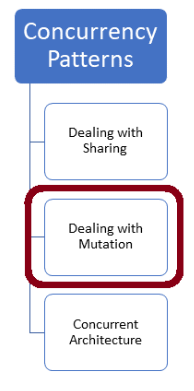 I continue my journey with concurrency patterns in today's post. The Thread-Safe Interface fits very well when the critical sections are just objects.
I continue my journey with concurrency patterns in today's post. The Thread-Safe Interface fits very well when the critical sections are just objects.